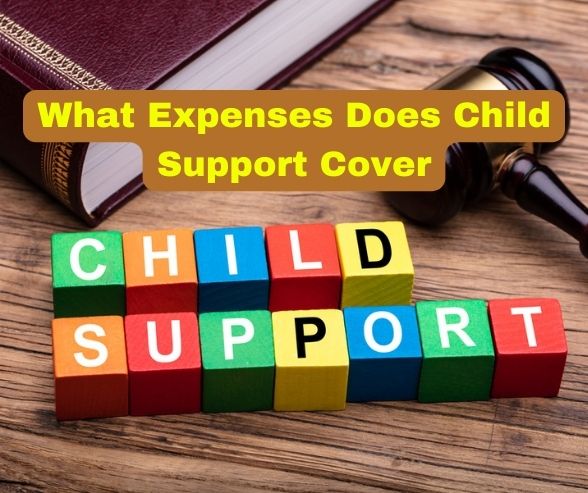A Comprehensive Guide to Family Law
Family law is an area of the legal system that deals with family-related issues, like divorce, child custody, and adoption. If you’ve ever faced a family-related legal issue, you know how emotionally draining and complex it can be. That’s where understanding family law becomes crucial—and why having someone to guide you, like a Consumer Legal Advisor, can make all the difference.
In Texas, family law covers a wide range of topics that affect families on a personal level. Whether you’re going through a divorce, fighting for custody of your children, or considering adoption, knowing your rights and options under Texas law is essential. Consumer Legal Advisors are here to help you navigate these tricky waters.
Recent Posts on Family Law
-
The Psychological Impacts of Dealing with a Narcissistic Spouse During Divorce
Divorce is never easy, but when your spouse is a narcissist, it can feel like an emotional battlefield. Imagine trying to navigate the usual stress of a divorce while also dealing with someone manipulative, self-centered,…
-
What Expenses Does Child Support Cover
Ex-spouses don’t often know what expenses child support is supposed to cover. Custodial parents sometimes ask for money even after the non-custodial parent has already paid their monthly child support. So, it’s unsurprising that some…
-
What Can Be Used Against You In A Custody Battle
Child custody battles are very common in difficult divorces. These disagreements can cause one or both parties to act irrationally, which may harm their divorce case. When parents fail to agree on who needs to…
Key Areas of Family Law
Family law encompasses many different aspects, but let’s break down some of the most common areas where people seek legal advice in Texas.
Divorce and Separation
Divorce is probably the first thing that comes to mind when you think about family law. In Texas, the process of getting a divorce can be either simple or complex, depending on whether the parties agree on the terms.
- Grounds for Divorce: Texas allows both “no-fault” and “fault-based” divorces. In a no-fault divorce, the court doesn’t need a reason beyond “insupportability,” which means the marriage is no longer viable due to conflict or discord. However, fault-based divorces, which could be based on reasons like adultery or cruelty, can influence the division of property or spousal support under Texas Family Code § 6.001.
- Separation: Unlike some states, Texas doesn’t recognize legal separation. However, couples can live apart and still remain legally married. In such cases, temporary orders regarding child custody, support, or property can be established until the divorce is finalized.
Consumer Legal Advisors can guide you through the divorce process, ensuring your rights are protected every step.
Child Custody and Visitation
Child custody is often the most contentious part of a divorce. Texas law focuses on what’s in the “best interest of the child,” which is a standard used to determine custody arrangements.
- Types of Custody: In Texas, custody is referred to as “conservatorship.” There are two main types: joint managing conservatorship (JMC) and sole managing conservatorship (SMC). In a JMC, both parents share the rights and duties of raising the child, but one parent may still have primary custody. In an SMC, one parent has the legal right to make significant decisions for the child.
- Visitation: Also known as possession and access, Texas law provides standard visitation schedules, but these can be adjusted based on the parents’ and child’s needs.
Legal advisors play a crucial role in negotiating custody arrangements, ensuring they’re fair and in the child’s best interest.
Child Support and Alimony
When parents divorce, financial support for the child and possibly one of the spouses becomes a significant issue.
- Child Support: In Texas, child support is calculated based on the non-custodial parent’s income, according to guidelines set out in Texas Family Code § 154.125. This ensures that the child’s financial needs are met.
- Alimony: Known as spousal maintenance in Texas, alimony is not automatically granted. The court considers several factors, such as the length of the marriage and each spouse’s financial situation, to determine if maintenance is appropriate. Under Texas Family Code § 8.051, specific eligibility criteria must be met.
Understanding these financial aspects can be daunting, but Consumer Legal Advisors help simplify these calculations and fight for fair support arrangements.
Adoption and Guardianship
Adoption is a beautiful way to build a family, but it’s also a legal process that requires careful navigation.
- Adoption: In Texas, adoption legally transfers parental rights from the birth parents to the adoptive parents. The process involves background checks, home studies, and court hearings. Texas Family Code § 162 outlines the specific procedures for adoption.
- Guardianship: While similar to adoption, guardianship doesn’t terminate the biological parents’ rights. Instead, it grants someone the legal authority to care for a child or incapacitated adult. Guardianship is often used when a parent is unable to care for their child but doesn’t wish to relinquish parental rights permanently.
Whether you’re looking to adopt or need to establish guardianship, Consumer Legal Advisors can help ensure that everything is done according to Texas law.
Common Challenges in Family Law Cases
Family law issues can be challenging, especially when emotions run high. Let’s explore some common hurdles you might face.
High-Conflict Divorces
Not all divorces are amicable. In high-conflict divorces, disagreements over property, children, and finances can lead to lengthy court battles. Texas courts aim to resolve these issues fairly, but it’s crucial to have a legal advisor who can help mediate disputes and protect your interests.
Domestic Violence and Restraining Orders
Domestic violence is, unfortunately, a reality for some families. If you’re in this situation, Texas law provides for protective orders, also known as restraining orders, to keep you and your children safe. Under Texas Family Code § 71.004, domestic violence victims can seek immediate legal protection. Consumer Legal Advisors can assist in filing these orders and ensuring they are enforced.
Parental Alienation
Parental alienation occurs when one parent manipulates a child to reject the other parent, which can severely damage the parent-child relationship. Texas courts take allegations of parental alienation seriously, as they can impact custody decisions. Legal advisors can help gather evidence and present a strong case in court to address this issue.
Legal Process and Documentation in Family Law
Navigating the legal process in family law requires a clear understanding of the steps involved and the documents needed.
Filing for Divorce or Separation
Filing for divorce in Texas starts with submitting a petition to the court. The petitioner (the person filing) must provide necessary information, including grounds for divorce, and ensure the respondent (the other spouse) is properly notified.
Preparing for Court Hearings
Going to court can be intimidating, but preparation is key. You’ll need to gather documents, such as financial statements, and possibly provide testimony. Consumer Legal Advisors help clients prepare thoroughly for hearings, ensuring they understand the process and are ready to present their case effectively.
Post-Judgment Modifications
Life changes, and so do circumstances around child custody, support, or alimony. Texas law allows for modifications of court orders if there’s a significant change in circumstances, like a job loss or relocation. Legal advisors can guide you through the process of requesting a modification, ensuring all legal requirements are met.
The Role of Consumer Legal Advisors in Family Law
Consumer Legal Advisors are not just legal professionals—they’re your partners in navigating the complexities of family law.
Personalized Legal Advice
One of the biggest benefits of working with a Consumer Legal Advisor is receiving advice that’s tailored to your unique situation. They’ll help you understand how Texas laws apply to your case and provide strategies designed to protect your interests.
Affordable Legal Assistance
Legal fees can be daunting, but Consumer Legal Advisors offer cost-effective solutions that don’t compromise on quality. They provide expert guidance at a fraction of the cost of traditional law firms, making legal assistance more accessible.
Support and Resources for Clients
Beyond just legal advice, Consumer Legal Advisors offer ongoing support and resources. Whether it’s answering questions, helping you fill out paperwork, or offering educational materials, they’re there for you every step of the way.
Case Studies and Testimonials
Hearing about real-life experiences can provide valuable insight into how Consumer Legal Advisors can help.
Real-Life Case Studies
For example, consider a high-conflict divorce where both parties were fighting over custody. With the help of a Consumer Legal Advisor, the parents were able to reach a fair custody arrangement, avoiding a lengthy court battle. This not only saved time and money but also reduced stress on the children involved.
Client Testimonials
Many clients have found peace of mind thanks to the guidance of Consumer Legal Advisors. One client shared, “I was overwhelmed by the divorce process, but my advisor walked me through each step, making sure I understood everything. I felt supported and confident, even during the tough moments.”
Conclusion
Family law can be complicated and emotionally charged, but you don’t have to navigate it alone. Consumer Legal Advisors are here to help you understand your rights, guide you through the legal process, and ensure the best possible outcome for you and your family.



